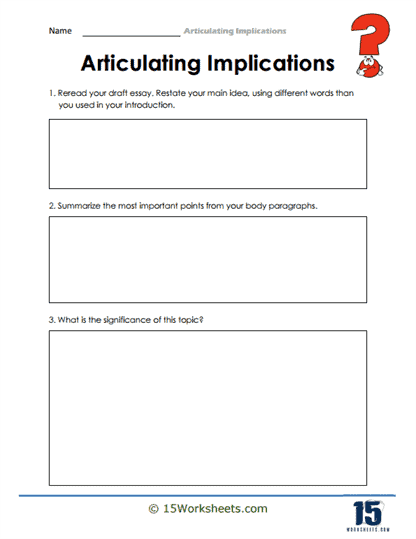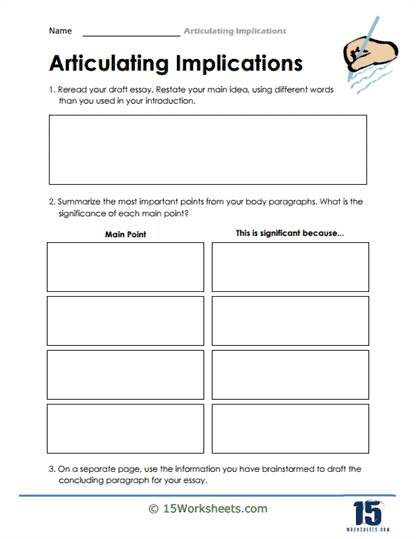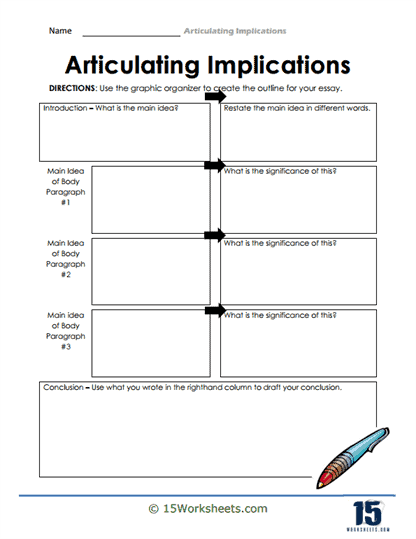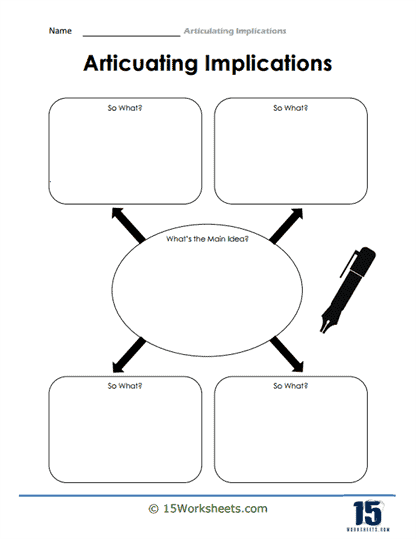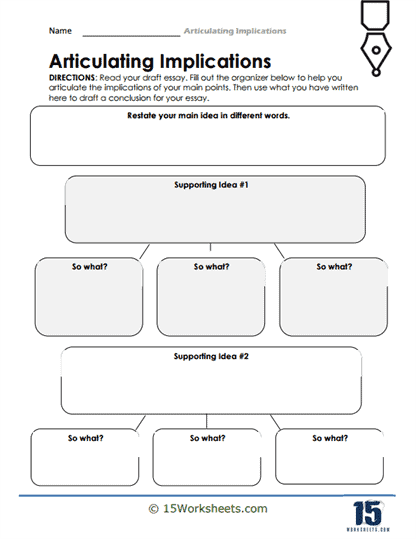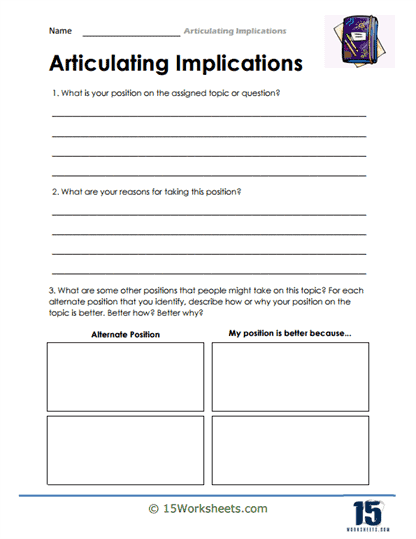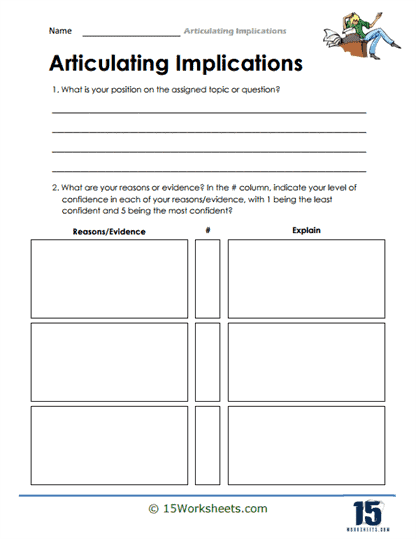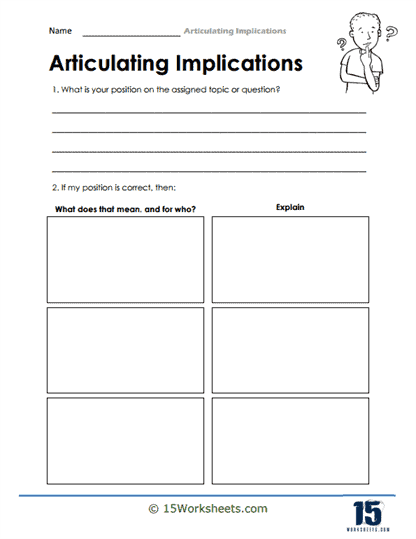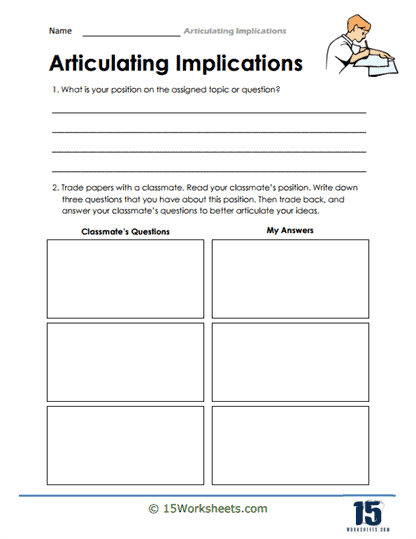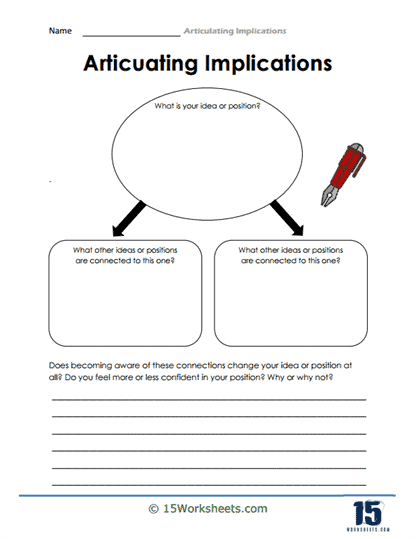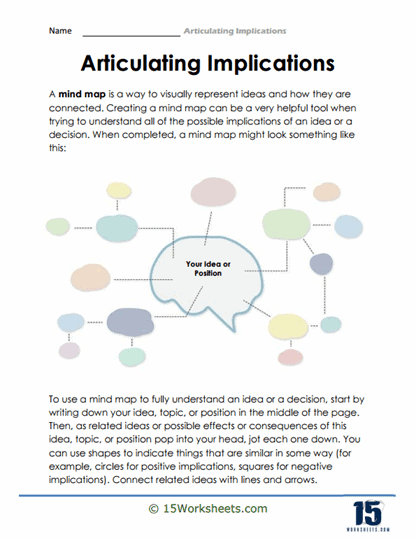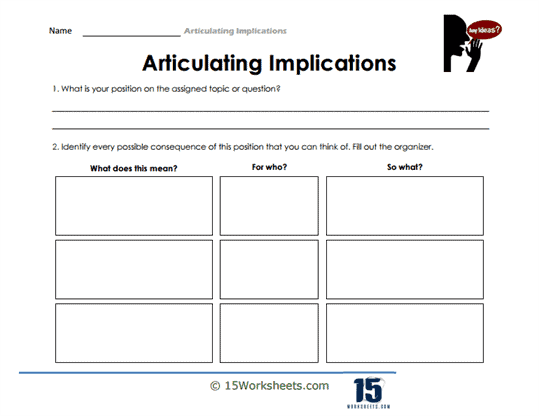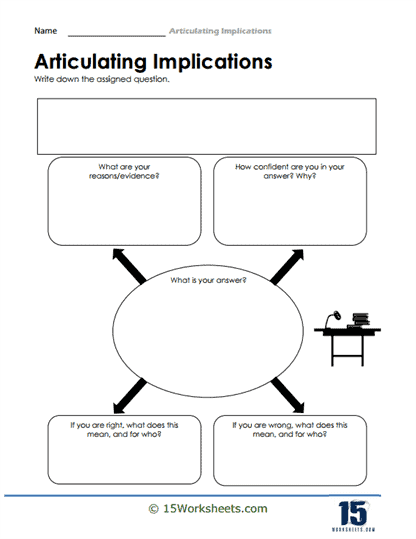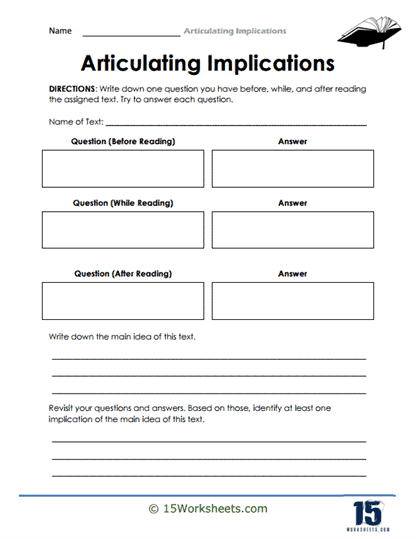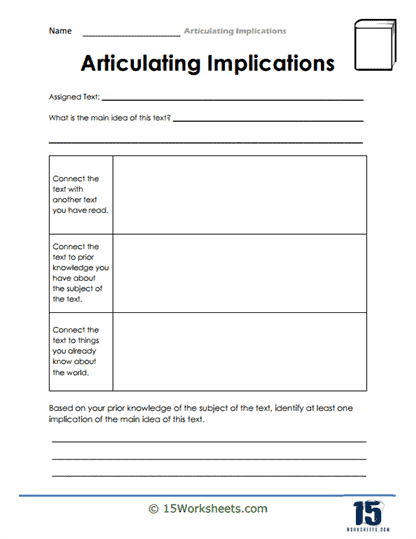Articulating Implications Worksheets
All About These 15 Worksheets
Students embark on a thought-provoking journey with this series of 15 worksheets designed to help them develop their skills in articulating implications. Each worksheet in this series provides students with a structured approach to analyze and express the potential consequences, effects, or significance of an idea, event, or situation.
This series caters to students across different grade levels and language proficiency levels, offering a range of worksheets that delve into various aspects of implication analysis. Through these worksheets, students will:
- Gain a deeper understanding of the broader implications that can arise from specific circumstances;
- Explore the consequences and effects that result from certain actions, events, or decisions;
- Develop the ability to identify implicit meanings and anticipate potential outcomes;
- Analyze complex issues, consider the different angles, and evaluate the implications associated with each perspective;
- Make connections between ideas, concepts, or events, allowing them to recognize the broader implications and relationships that exist;
- And learn to refine their ideas and communicate their findings effectively.
Overall, this series of worksheets serves as a valuable resource for educators seeking to enhance students’ critical thinking and communication skills. By engaging with these worksheets, students develop the abilities to analyze implications, make inferences, synthesize information, and express their insights effectively, empowering them to become insightful and articulate thinkers.
How to Compose a Solid Implication
In English composition, an implication is an idea that is suggested or hinted at rather than stated directly. An implication is often conveyed through language that is indirect or ambiguous.
For example, if a writer says, “It was cold outside,” this statement implies that the weather was unpleasant. Implications can also be found in more complicated language, such as metaphors and similes. In addition to providing clues about the author’s intention, implications can create new layers of meaning in a text. As readers, we often have to look beyond the surface of a text to understand its implications. This can be challenging, but it can also be rewarding, as it allows us to deepen our understanding of what we read.
There is more than one way to write a good implication. If you’re having a challenging time writing an implication, don’t worry! Let’s have a look at how to use implications in your writing and some tips for making sure your implications are effective.
The Different Types of Implications
There are three different types of implications:
Presumptive implications are those that the reader is expected to know or be able to infer without being told directly. For example, if a character in a book is described as having “cold, blue eyes,” the reader can presume that this character is not friendly.
Inclusive implications are those the writer includes in the text for the reader to interpret. For example, if a character in a book is described as being “lonely,” the reader can infer that this character does not have many friends.
Exclusive implications are those the writer leaves out of the text for the reader to interpret. For example, if a book ends with a character’s death, the reader can presume that this character was not happy with their life.
How to Use Implications in Your Writing
An implication is something that is suggested or implied rather than being explicitly stated. In writing, implications can be used to add depth and nuance to your work. For instance, you could imply that a character is feeling nervous by having them tap their fingers on the table or fidget with their clothes. Or, you could suggest that a situation is dangerous by describing the protagonist’s pounding heart and sweating palms.
Implications can also be used to hint at future events or to foreshadow plot twists. For example, you might imply that a character is going to be betrayed by having them observe somebody acting suspiciously. Ultimately, implications are a powerful tool that can be used to enhance your writing in a variety of ways. So next time you’re stuck on what to say, try implying it instead.
Examples of Good Implications in Action
A good implication is when the reader understands the message being conveyed without being directly stated. This can be done in several ways, such as through subtext, symbolism, or allegory. In some cases, a good implication can leave the reader with a greater understanding of the story than if the author had simply stated the message outright.
One classic example of a good implication can be found in George Orwell’s “Animal Farm.” The story, which is an allegory for the Soviet Union under Joseph Stalin, ends with the pigs walking on two legs and wearing clothes. The implication here is that the pigs have become indistinguishable from humans and that the ideals of the revolution have been corrupted.

